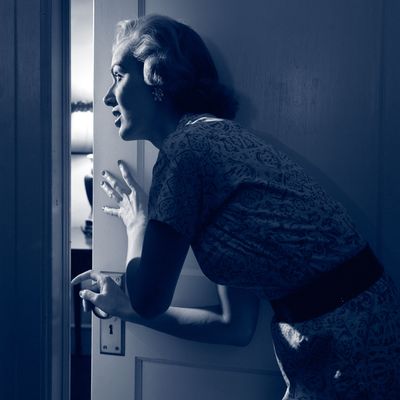
Donald Trump’s inauguration speech two weeks ago stood out because it painted a vision of the United States many Americans don’t recognize. Trump spoke darkly of “mothers and children trapped in poverty in our inner cities, rusted-out factories scattered like tombstones across the landscape of our nation,” and pledged to stop the “American carnage” that had ensnared the nation. The U.S. has plenty of problems, of course, but Trump made it sound like the country is on the verge of collapse, which it surely isn’t.
Trump was speaking to his core supporters, many of whom inhabit a very different information universe from the rest of the U.S. Their preferred news sources make a point of highlighting scary threats against the U.S., from Muslim radicals trying to infiltrate us via our weak southern border to Black Lives Matters “terrorists” — that’s the term that’s often used — seeking to kill police officers. Many of these claims, of course, tend to be severely overhyped or flat-out false — “fake news” was one of the major themes of the 2016 presidential campaign.
The evidence we have suggests that the fakest of this fake news — instances in which stuff is basically made up, rather than exaggerated or distorted — mostly targeted and was spread by conservatives, and that while there’s liberal fake news too, there’s less of it. Why might that be the case? In The Atlantic, Olga Khazan runs down an upcoming study in the journal Psychological Science which points to one possible explanation: Conservatives are just more scared of stuff in general.
As Khazan describes the study:
Daniel Fessler, an anthropology professor at the University of California, Los Angeles, led a study in which two sets of subjects read a series of 16 statements, most of which were false, but all of which sounded like they could be true. Some of them focused more on the (fake) benefits of doing something, such as “Exercising on an empty stomach burns more calories,” while others focused on risks, such as, “terrorist attacks in the U.S. have increased since Sept 11, 2001.”
Fessler found that liberals and conservatives, as gauged by questions about their political beliefs and affiliations, were equally likely to believe in the “good” statements, but that conservatives were more likely to believe the scary ones. After explaining that humans, in general and regardless of politics, are more attuned to potential threats than to potential boons, Khazan references the “several studies [that] show that conservatives tend to be more sensitive to the possibility of danger than liberals are. That helps explain why conservatives endorse policies that minimize the introduction of new, potentially harmful influences to society, like immigration, gay marriage, or comprehensive sex education.” It could also help explain why they’re more likely to spread fake news, of course.
One limitation of this study is the highly controlled environment in which it took place. This is a necessary evil in any study in which you’re trying to gauge people’s views in as “clean” a manner as possible, of course. But in real life, people form and reinforce their beliefs in a noisy information environment. One thing that jumps out from the list of questions Fessler asked, which start on page 32 of the PDF, is that one of the “threat” questions, the 9/11 one referenced above, is very politicized, and another, “Stockwood, California, is one of the safest cities in the U.S.,” is a bit politicized. That is, conservatives tend to be more concerned about terrorism and crime than liberals. In fact, Fessler notes elsewhere in the paper that the terrorism question “had a large influence” on his overall results, and explains that even if you exclude it, you get a significant differences between how liberals and conservatives respond to these questions.
So one interesting question is what would happen if you included scary, false items that are more likely to trigger liberal fears. “A recent study found that even in safe communities, there is a 40 percent chance police will unjustifiably open fire on civilians in a given year,” for example. Or maybe “Scientists say ocean levels could rise 10 feet by the end of the decade due to climate change.” I’m guessing if you asked those questions, you’d find that liberals are more likely to believe false claims.
The point here isn’t to hack this study in some cute gotcha way — the point is that the question of which fears we respond to and how we do so tends, in the real world, to be deeply politicized and context-dependent. At the moment, liberals are feverishly spreading fairly far-fetched conspiracy theories about the Trump administration’s machinations, for example. In most cases, these theories aren’t quite the same as the fake news that dominated the campaign — truly gonzo stuff about Hillary Clinton and the Democratic National Committee being involved in child-sex trafficking, and so on — but the same mechanisms are at work.
Now, if you could somehow remove all this noise and context, it’s probably the case — as politically incorrect as it is to point this out — that conservatives are more likely to believe false claims. They tend to be a bit more authoritarian, to have higher levels of need for closure (discomfort with ambiguity), and to possess other characteristics that might make them more likely to latch onto false explanations that force order onto a chaotically random world. The fact that there is such a larger right-wing than left-wing fake-news ecosystem should tell us something, and it’s useful to understand these sorts of population-level differences (which, to be fair, is all Fessler and similarly oriented researchers are trying to do). But there’s still a lot we don’t know about how all this stuff manifests itself in the real world, and there are still plenty of instances in which liberals fall for fake-news traps when their own fears are stoked.




